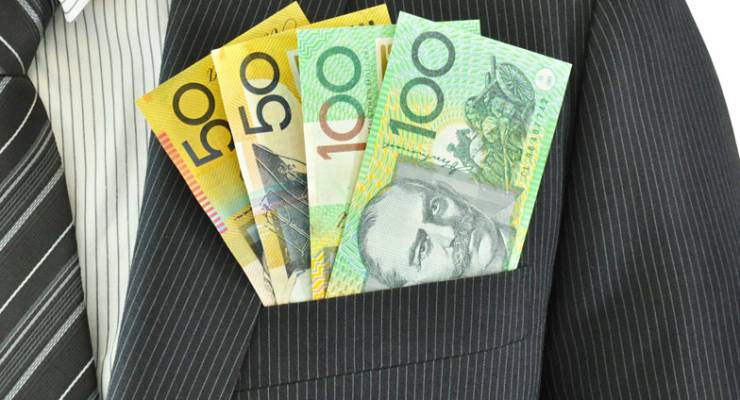
Say you’re a major Australian company. And say you’ve just wasted over $1 billion on a dud foreign venture. What better way to balance the books than to have your own bespoke business lobby group argue for a company tax cut that will deliver you a major windfall?
As Crikey has pointed out previously, the Business Council of Australia is very much a Wesfarmers show. We’ve even had leaders of other business lobby groups complain about the dominance of Wesfarmers at the BCA. Up to the end of 2017, Wesfarmers had more members of the BCA than any other company — chairman Michael Chaney is a former Council head, director Jennifer Westacott is BCA CEO and director Richard Goyder was Wesfarmers CEO from 2005 to the end of last year.
In January 2016, Wesfarmers paid AU$705 million for the faltering UK hardware chain, Homebase and promised to send $1 billion on rebranding and fixing it up. Yesterday it announced nearly $1 billion in writedowns and losses from the ensuing debacle. On top of that, new CEO Rob Scott wrote a further $306 million off the value of Target, the still poorly performing Australian department store chain. That takes total write-offs for Target to more than $2.1 billion since 2014, including a whopping $1.208 billion in 2015-16. The $850 million written off on the Curragh coking coal mine in central Queensland last year was just pocket change along the way.
All up Wesfarmers has written off and lost more than $4.7 billion since 2015. And it joined the ignominious list of Australian firms that came a cropper in the UK — which features Fosters, Bond Media, AMP, NAB, Insurance Australia Group, Slater & Gordon and QBE.
Yesterday’s announcement has all the hallmarks of the now usual ‘kitchen sinking’ by a new CEO — find as many writedowns as possible, announce them and blame them (without saying directly) on the old regime. The other benefit is that it generates a handy tax loss to deploy against future profits — short-term embarrassment for long-term benefit, if you like. It is what Pat Regan has done at QBE with its huge billion-dollar plus writedown and a loss for 2017 of at least US$1.2 billion. It’s a pretty cynical exercise, but one all too common in business here and around the world.
Let’s accept the arguments of Scott Morrison, the Business Council and the Financial Review that tens of billions in company tax handouts to large corporations like Wesfarmers won’t be used to goose share prices and boost executive remuneration, but really will be spent on new investment. How much will be absorbed by future writedowns due to dud business decisions from Australia’s decidedly mediocre managerial and directorial class?
Meantime, in the United States, where we’ve been told business is eagerly investing its trillion-dollar windfall from the Trump tax cuts amid booming economic conditions, Wall Street saw the Dow suffer its largest ever one-day slide Monday — 1,175 points. That’s even larger in points terms than the Black Monday crash in 1987, and greater than anything in the financial crisis. The Dow is down nearly 8.8% in two days, its three-day slide is the worst ever, the S&P 500 is off 8% in the same time and the Nasdaq’s slump is closing in on 8%. The slide in recent days has wiped out around $2.2 trillion in share value so far — far more than the benefit of the Trump tax cuts, if anyone’s counting.
The local sharemarket finally followed suit yesterday and fell 1.5% yesterday. Deputy Prime Minister Barnaby Joyce — that’s the man who once predicted Australia would default under Labor and lost his finance shadow ministry shortly thereafter — said the local sharemarket fall showed the need for corporate tax cuts. Um, Barnaby, old mate, that’s a funny thing to say given American CEOs had been celebrating their tax handout from Trump until last week.









BCA will also be vehemently opposing the concept and application of a living wage. I don’t expect business to be joining with the ACTU to argue in favour of minimum wage rises in front of the Fair Work Commission.
But don’t fret – the $60 billion wiped off the markets this morning was only an adjustment. Free market in action in a liberal democracy. Nothing to see here. Losses will be nationalised, profits will be privatised.
And other swindles.
Pardon, but you don’t seem at all baffled mate.
You’ve got a clue or two.
Cousin Jethro should stick to an area of proven expertise ie: deporting dogs owned by Hollywood A-listers.
His economic analysis is on a par with his Murray-Darling water management.
Must be comforting to have Jethro in your corner getting your back?
….. Probably explains what happened to the Tuppence spine?
It used to be said that the sign the market had peaked was Telstra or BHP buying a large enterprise.
Does management set bonus performance targets that can best be met by gambling large amounts of shareholder money? It would be rational to do that.
“Sure we’ll hire more plebs on the back of those Corpulent Tax cuts – right after we attend to a couple of other little outstanding matters….”?
Here’s a thought – I have to assume that these write-downs are then taken off the bottom line, such that tax receipts then take a hit to the value of 30% of the write-down. Anyone better informed on company tax that can clear that up.
Interestingly, a reduction in the company tax rate has the upside of the tax-payer stumping up less for these losses. Is that not so, and wonderfully perverse.
Not true. Contrary to what the article says, writedowns and impairments are not deductible for Australian tax purposes (nor under the vast majority of tax jurisdictions). The taxman views these as non-cash accounting adjustments only, which is appropriate.
However, they can be tax-deductible if and when the operations are abandoned altogether, but not necessarily.